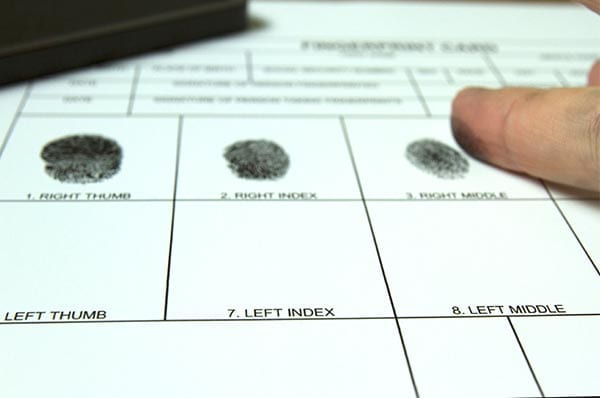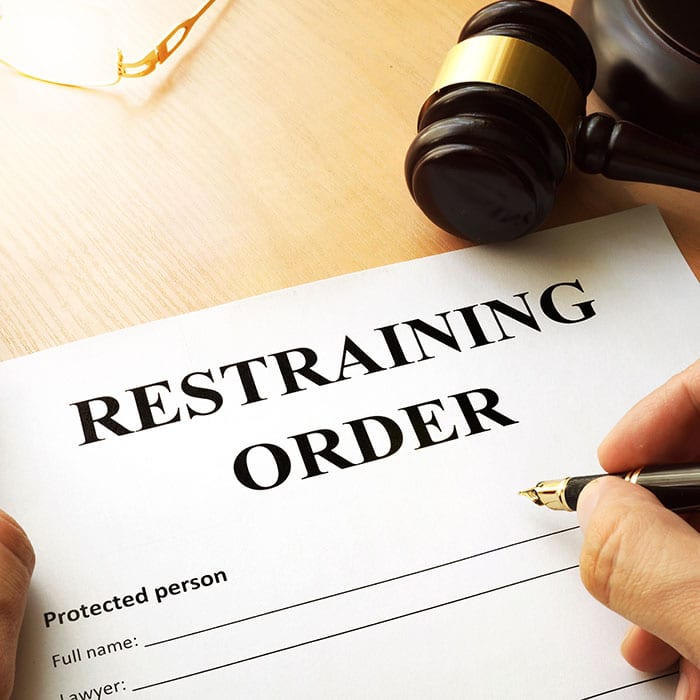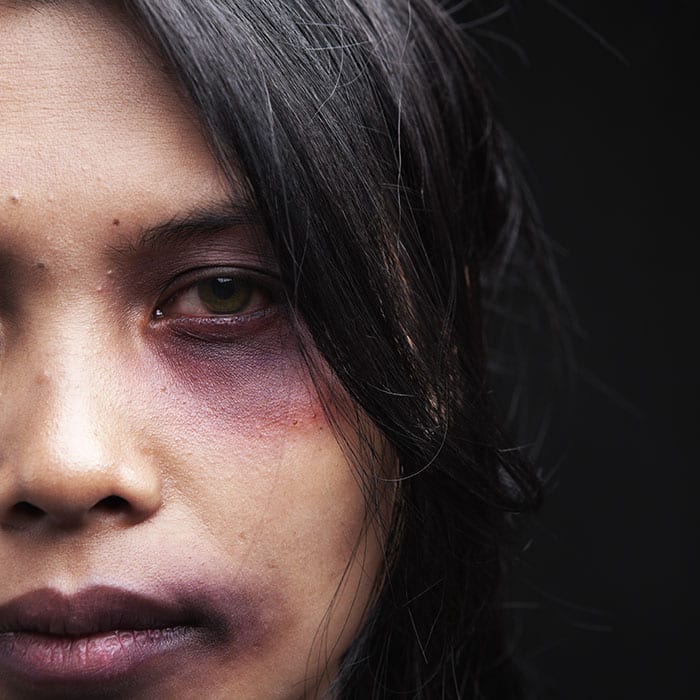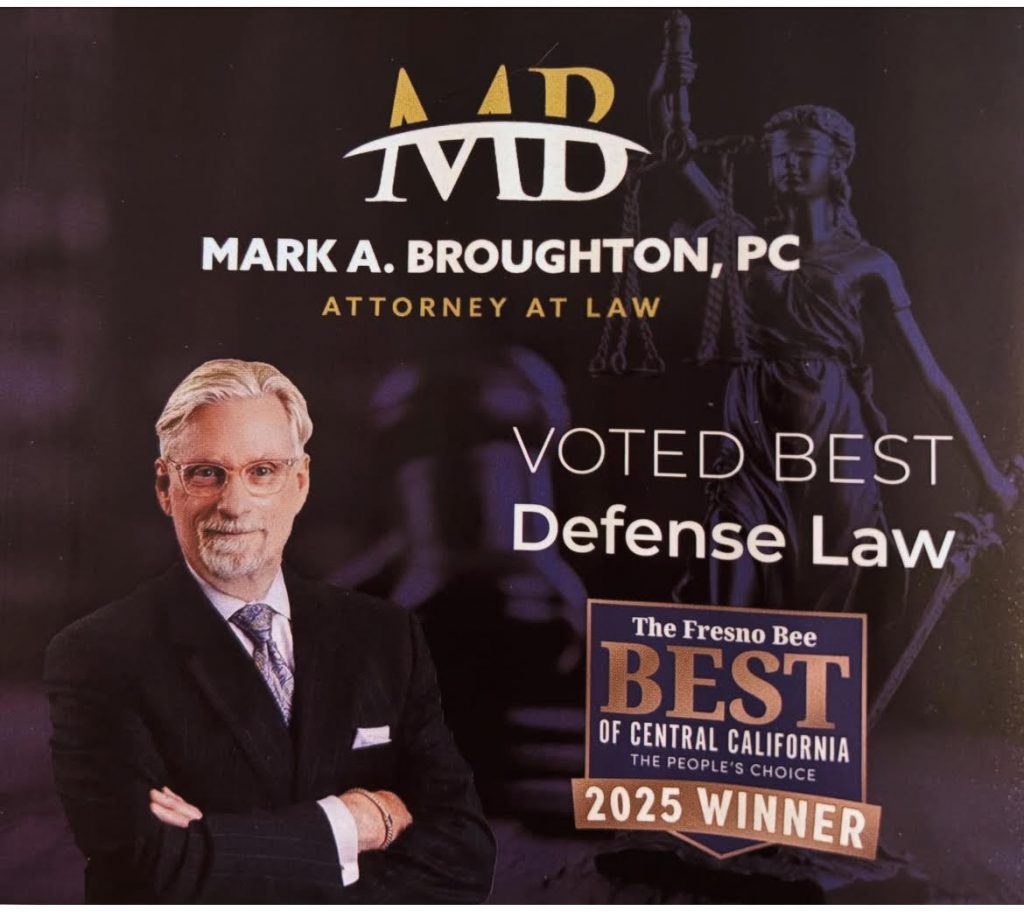What is Murder?
Under California law, murder is defined as the unlawful killing of a human being or fetus with malice aforethought.
Malice aforethought generally means that the person intended to kill.
First-Degree Murder
First Degree Murder requires premeditation and deliberation in addition to malice. Malice can be expressed or implied. When it is expressed, it means killing the victim was intentional. When it is implied, it means the killing resulted from an intentional act, the act, or consequences thereof, were dangerous to human life, and the act was intentionally performed with the knowledge of the danger it entailed and with conscious disregard for human life.
Malice aforethought doesn’t mean someone has to act with hatred towards someone else. It means that someone with an unprovoked disregard for human life acted in a way that would most likely result in the death of someone else.
In order to be convicted of 1st-degree murder one of the following has to be true:
- The killing was intentional, done consciously, or planned. Example – A man waits inside his ex-girlfriend’s apartment for her to come home. He kills her when she gets home.
- The killing was committed during certain specified felonies, such as robbery or rape. Example – A person set a house on fire thinking there was no one inside, but there was someone inside and they were killed.
Testimonials
“My husband and I have really had our ups and downs these past four years and it was helpful to watch your poignant YouTube video a few months ago where you described a story about never wanting to leave your clients behind. We appreciate that, believe me, as this whole journey has been unbelievably hard. Thank you for your continued support as we approach what will hopefully be the final chapter of my husband’s journey. I am hoping for the best of all outcomes.”
“After the first meeting with Mark, I knew we were in the right place. Mark was able to get answers and call all the right people to protect my child. We would never deal with the criminal justice system again with out Mark Broughton at our side. We are very thankful we found him and the matter with our son went away quickly.”
“Mr. Broughton is top notch. My son was facing a felony, strike charge. Mr. Broughton fought for my son’s pre-trial release against the recommendation of the probation department, and my son was able to come home. Today, the case was resolved and the outcome was minor in comparison to the charge. I highly recommend Mark Broughton!”
“He is an amazing lawyer, I had a near impossible felony case and he helped me bring it down to a misdemeanor. Amazing personality and a kind human being!”
“I highly recommend Mark Broughton. His expertise, professionalism, and empathy in our complex case gave us the feeling of confidence. I cannot begin to show or say how much we are grateful to you. Mark Broughton, you are truly an Angel in disguise. Again Thank You!”
“I was charged with 2 felonies and was at risk of jail time, losing my job and my children, basically my entire life. Mark worked closely with me and… I was able to plead no contest to 1 misdemeanor.”
“I am forever grateful for what Mark has done for my me and my family.”
“Thank you Mark… for the excellent work you all did on my son’s cases and the on-going support you all showed my family and myself through this very difficult time in our lives.”

KARON

KAREN

JILL

ANONYMOUS


RAQUEL


ANONYMOUS



ANONYMOUS


ANONYMOUS
Get Legal Help Today!
(559) 691-6222
Have Questions? Don’t go it alone. Let’s sit down one-on-one. I will review your case and your options for the best possible outcome.
Have Questions? Don’t go it alone. Let’s sit down one-on-one. I will review your case and your options for the best possible outcome.
Special Circumstance Murder
Special Circumstance Murder is 1st-degree murder for which the possible penalties are as follows:
- The death penalty, or
- Life in a state prison without the possibility of parole.
Some of the Special Circumstances that apply to First-degree murder include:
- The murder was intentional and committed for financial gain.
- There were multiple murder victims.
- A police officer, firefighter, prosecutor, judge, juror, or elected official was murdered.
- A witness was murdered to prevent them from testifying.
- The victim was murdered in the process (before, during, or after) committing any of the felonies under the felony-murder rule.
- A person was murdered because of their race, religion, nationality, or country of origin.
- A person was murdered in a drive-by shooting.
- Murdering someone for the benefit of a street gang.
For the full list of capital murder charge circumstance, please see California Penal Code 190.2.

Felony Murder Rule
The felony murder rule applies if someone dies while committing certain defined felonies. The murder does not have to be intentional, but it does need to be logically related to the felony committed. For example, if someone sets fire to a building and someone dies in the fire then the felony murder rule applies. This unintentional death would make the arsonist liable for first degree murder charges.
1st-Degree Felony Murder
The felony murder rule only applies to these felonies:
- Arson
- Robbery
- Burglary
- Carjacking
- Train wrecking
- Kidnapping
- Mayhem
- Torture
- Certain sex crimes
- Rape
- Unlawful acts of sodomy
- Unlawful acts of oral copulation
- Forcible acts of penetration
- Lewd acts with a minor
Legal Defenses for Homicide
California’s self-defense laws can protect you if you acted in self-defense or defense of others. You have to reasonably believe that you or someone else is in immediate danger of:
- Being killed
- Suffering great bodily injury
- Being raped, maimed, robbed, or having some other forcible act committed upon you or another person.
If any of these situations apply, then you have the right to use whatever measures necessary to stop these from happening.
A killing can be an accident if:
- There was no criminal intent to do any harm
- The defendant was not acting negligently
- The defendant was following the law at the time of the killing
It’s possible to plead “not guilty by reason of insanity” when charged with murder. If the defendant only killed because he or she didn’t understand what he or she was doing and he or she couldn’t distinguish between right and wrong, then he or she is not guilty by reason of insanity. In this situation, the defendant would be committed to a psychiatric hospital.
If you were questioned by the police and your statement was not voluntary, that statement might be suppressed (ruled inadmissible) in the trial against you.
If the only significant evidence against you is your statement, the case against you may have to be dismissed.
A lot of time, detectives will have a person in mind that they think committed the murder and try to get the facts to work with their theory, instead of looking for the facts and then formulating a theory. This often results in a coerced confession. There have been many instances where a suspect was interrogated for hours and finally says they did it so they can leave.
California has search and seizure laws that require the police force to have probable cause or a valid search warrant for specific areas in order to search someone’s person or property. If they go beyond the boundaries of their warrant or don’t have probable cause, then it becomes an illegal search and seizure.
Have you been legally accused of committing murder? If you have been arrested or charged with a crime, it is essential to obtain legal council for help. It’s important to take your charges seriously. Don’t just hope for the best. Hire an attorney who understands your situation and the consequences you face.

Your Defense Attorney for Murder Charges
I’m Mark A. Broughton and I’m here to fight for you. I have been a defense Attorney for 40+ years and have represented thousands of people accused of crimes. I have extensive experience representing citizens charged with Felonies, Federal Crimes, White Collar Crimes, Violent Crimes, Gang Crimes and Sex Crimes to name a few.
Your Defense Attorney for Murder Charges
I’m Mark A. Broughton and I’m here to fight for you. I have been a defense Attorney for 40+ years and have represented thousands of people accused of crimes. I have extensive experience representing citizens charged with Felonies, Federal Crimes, White Collar Crimes, Violent Crimes, Gang Crimes and Sex Crimes to name a few.
Legal Experience


I estimate that I have conducted over 200 jury trials – everything from DUIs, drug cases, sex cases, domestic violence, assaults, “three-strikes,” dozens of cases involving criminal street gangs, gun/deadly weapons, drive-by shootings, robberies, attempted murders, and murders, including special circumstance murder cases.
Results
I have received many outright Not Guilty verdicts for my clients in all of these types of cases, including several murder cases – at one time between 2005-2007, the jury found my clients Not Guilty in four separate cases in a row. I have handled all kinds of criminal and related criminal proceedings, from violation of probation and parole hearings, DMV hearings, writs & appeals, and many other types of proceedings in the criminal process.
I have practiced all over California, in both state and Federal Court. I am qualified as a death penalty lawyer and am on the special circumstances/death penalty panel of attorneys in Fresno, California, where I am regularly appointed to special circumstances/death penalty murder cases by the Fresno County Superior Court. One of my greatest pleasures over my long career has been to teach and train young lawyers and law students. Most of them have gone on to be successful lawyers in their own right, and have triumphantly represented their own clients in an honest and professional way.
Community Involvement & Family


I have saved the many letters of appreciation from clients and their families to whom I have been fortunate enough to have been of service. It is most gratifying for me to see them get back together, overcome their difficulties and live happy and fulfilled lives. Helping people is, after all, what being a good lawyer is all about. I like going to football and baseball games, fishing, surfing, and going to Hawaii where I can get caught up on my reading list and swim in the warm waters of the Pacific. I love sharing the lives of my two children, two grandchildren and spending time with Andrea, my wife of over 30 years.
About Mark Broughton:
Compassionate, highly experienced, exceptional reputation, ethical and honest:
Mark Broughton has been practicing law for over 40 years. He estimates that he has conducted over 200 jury trials – everything from DUIs, drug cases, sex cases, domestic violence, assaults, “three-strikes,” dozens of cases involving criminal street gangs, gun/deadly weapons, drive-by shootings, robberies, attempted murders, and murders, including special circumstance murder cases.
He has received many outright Not Guilty verdicts for his clients in all of these types of cases, including several murder cases – at one time between 2005-2007, the jury found his clients Not Guilty in four separate cases in a row.
Mark Broughton is qualified as a death penalty lawyer and is on the special circumstances/death penalty panel of attorneys in Fresno, California, where he is regularly appointed to special circumstances/death penalty murder cases by the Fresno County Superior Court.
Other Qualifications:
- Certified Specialist Criminal Law, State Bar of California
- Board of Trustees, State Bar of California
- Chairman, Fresno County Bar Association, Criminal Law Section
Mark Broughton enjoys close relationships with his clients. He sees every individual’s situation with compassion and empathy and believes that every person has the right to a fair trial and is innocent until proven guilty.
Above all, he enjoys helping reunite his clients and their families during and after dealing with perhaps the most difficult time in their lives, going through the challenging criminal process with them.
Practice Areas
Murder FAQ (Frequently Asked Questions)
Under California law, the three types of murder are Capital Murder, 1st-Degree Murder, and 2nd-Degree Murder. Florida, Pennsylvania, and Minnesota recognize a 3rd-Degree Murder charge that’s similar to a manslaughter charge in California.
Capital Murder is 1st-Degree Murder with “special circumstances.” The circumstances that elevate 1st-Degree Murder to Capital Murder include killing for financial gain, killing as part of a hate crime, killing more than one victim, killing a member of law enforcement, killing done as part of gang, as well as about 15 others listed in CA Penal Code Section 190.2 PC.
First-Degree Murder is defined by California law as the intentional killing of another person with deliberate and premeditated “malice aforethought” and without any lawful excuse (such as self-defense).
Second-Degree Murder differs from first-degree murder in that it wasn’t deliberate or premeditated.
In the eyes of the law, 1st-Degree Murder is the worst type of murder. As such, it carries the most severe penalties in terms of sentencing if convicted.
Homicide is a general term that means someone has been killed by someone else. Both murder and manslaughter are homicide charges of different degrees of severity and carrying different penalties.
The main difference between manslaughter and murder charges is the intent behind the crime. Manslaughter is when someone has been killed but there wasn’t a premeditated intention to do so with malice aforethought.
First-Degree Manslaughter — voluntary manslaughter — is considered a “heat of passion” crime. It is when one person kills someone else during a sudden fight, for example, or in unreasonable self-defense or by acting with a conscious disregard for human life.
Second-Degree Manslaughter — involuntary manslaughter — is when a person kills someone else through gross negligence or recklessness. It could happen while committing a lawful act unlawfully (like driving a car while under the unlawful influence of alcohol or drugs, for example) or it could happen while committing a crime but with criminal negligence.
Sentencing for manslaughter depends on the level of the crime you’re convicted for. You could be facing anywhere from 3 to 11 years in state prison if convicted of voluntary manslaughter. Sentencing can range from 2 to 4 years for involuntary manslaughter.











